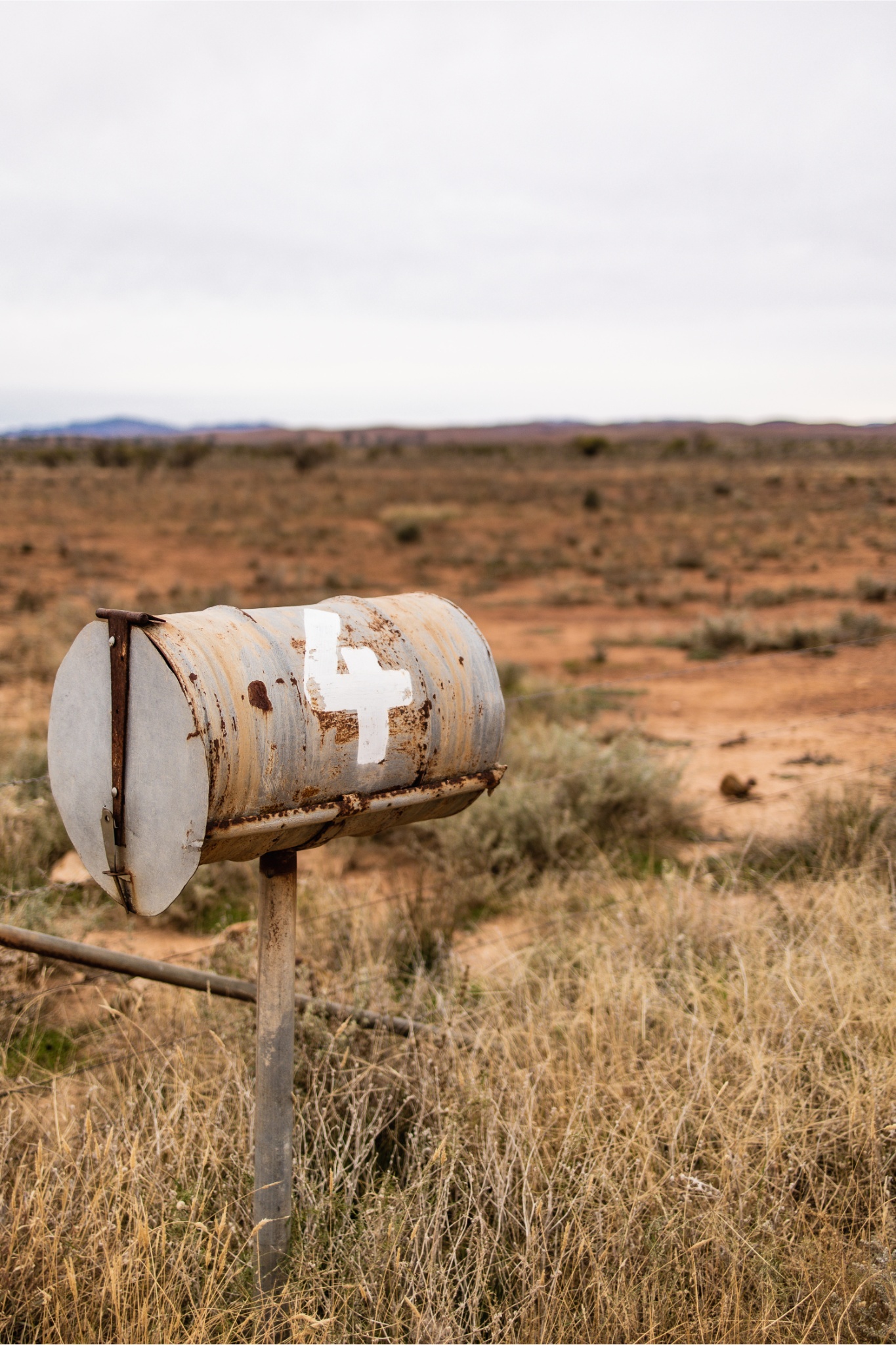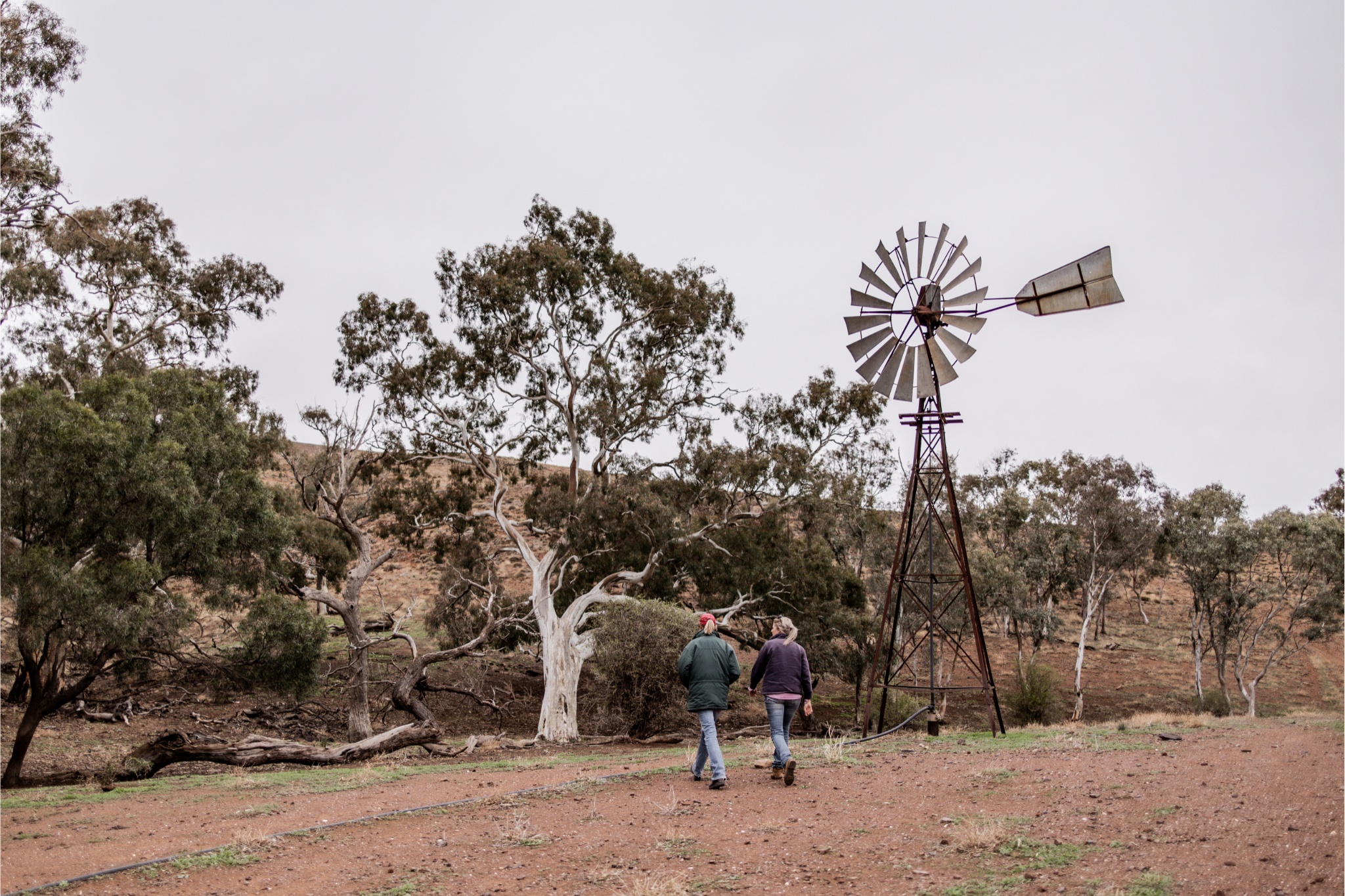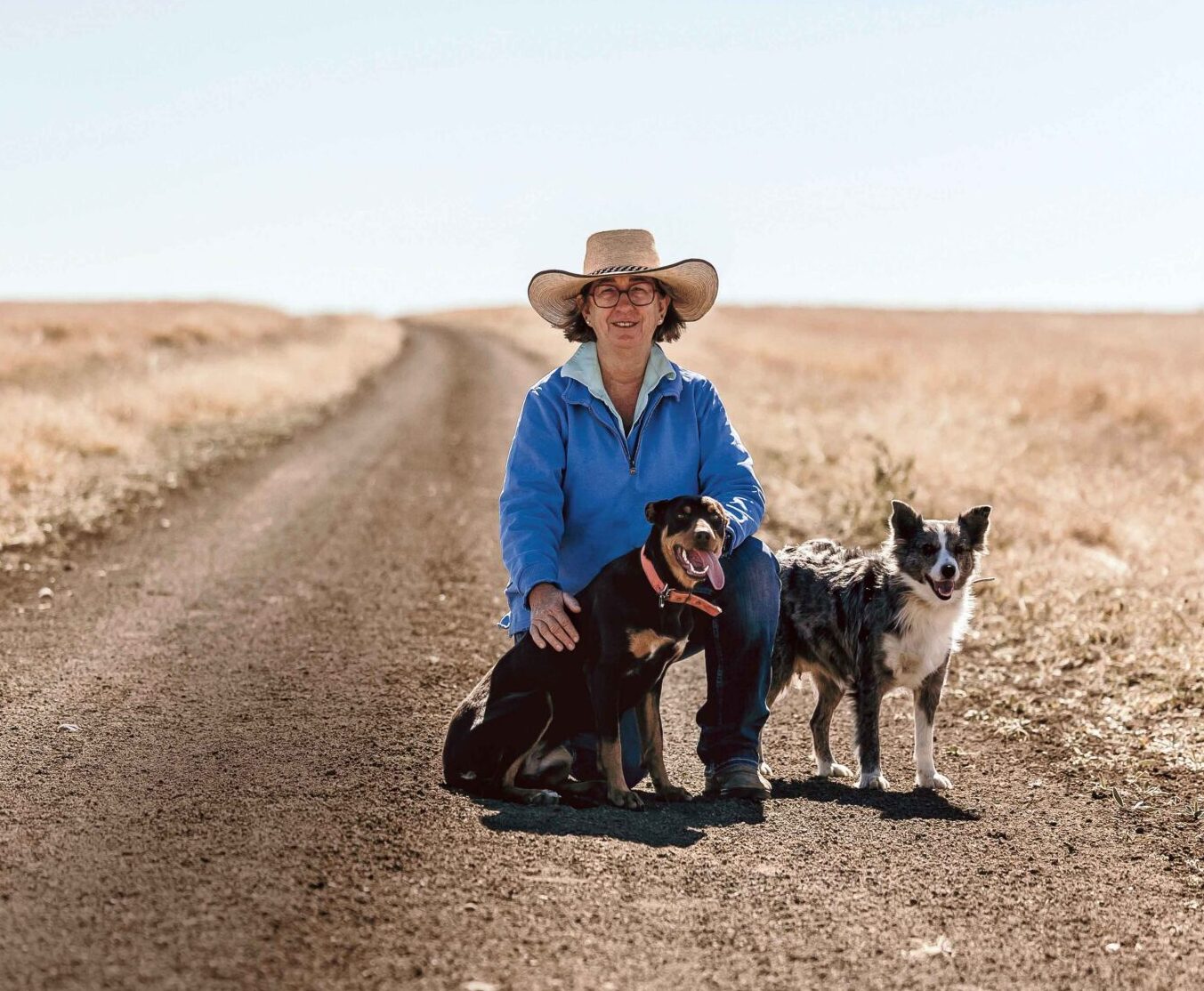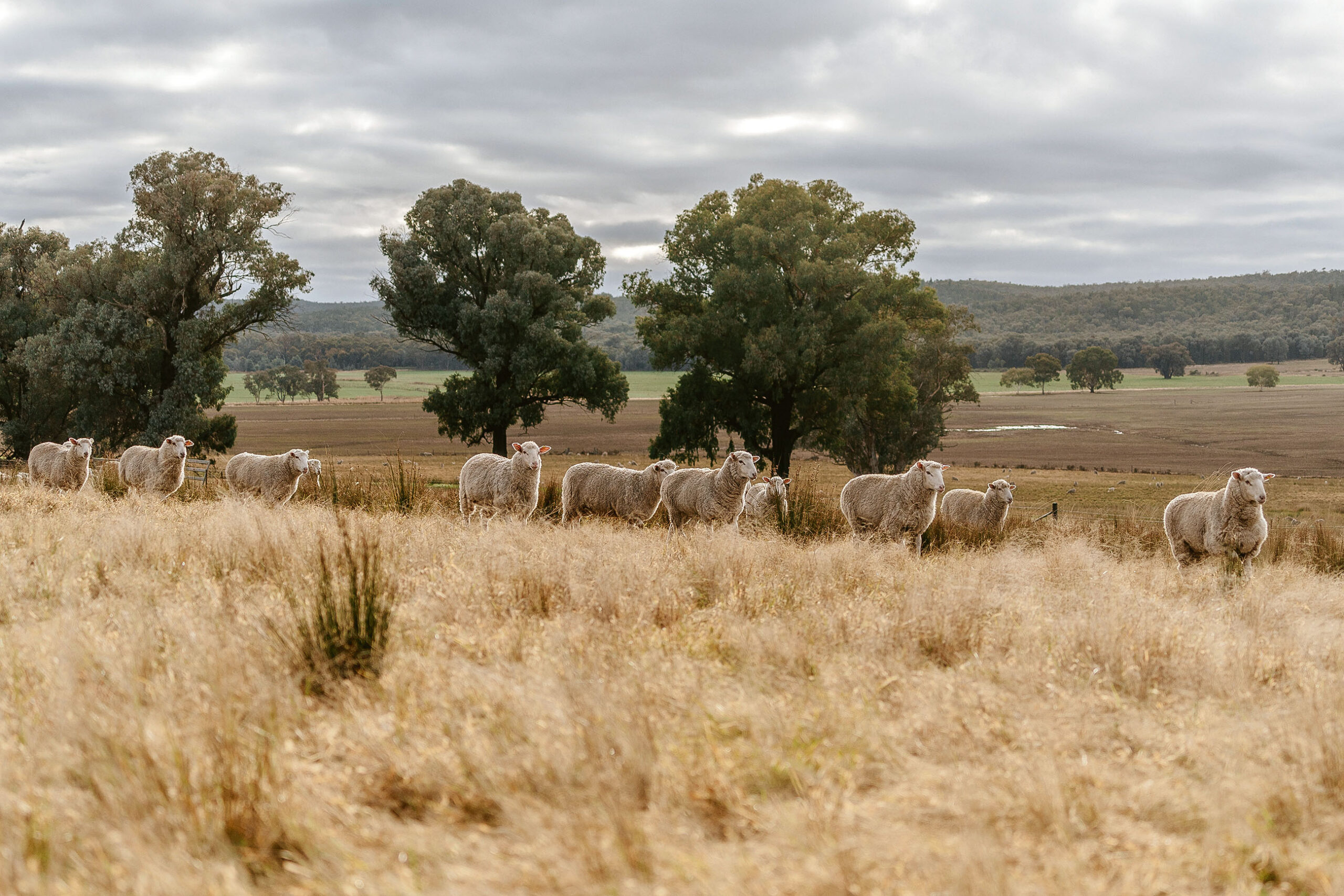Sisters Rachael Hilder (left) and Ellie Oates.
PHOTOGRAPHY ALYSHA SPARKS
Sign up to our mailing list for the best stories delivered to your inbox.
Rachael Hilder and Ellie Oates have joined forces to run Acacia Valley, their family’s 16,000 hectare sheep property near Cradock.
WORDS PENNY CARROLL PHOTOGRAPHY ALYSHA SPARKS
The ability to speak volumes with a single glance is a serious advantage when you’re running a business together, and even more so when that business is a 16,000 hectare sheep property. The sisters are the fourth generation of Hilders to farm Acacia Valley, near Cradock in the Flinders Ranges, about 400 kilometres north of Adelaide. It’s a role they’ve been preparing for all their lives. “Growing up, we were involved with pretty much anything going on at home, and I think that helped us learn to work together as well as we do these days,” says Rachael, 35. “We have the same goals and our work ethic is very similar,” adds Ellie, 29. “We just love stock handling.”
The vast, other-worldly landscape of the Flinders Ranges is imprinted on the sisters’ DNA, as is their passion for growing wool. Still, their parents encouraged them to explore the outside world before they committed to the responsibility of the farm. After school, Rachael was employed as a governess in outback South Australia before working in a variety of agriculture roles across South Australia and the Northern Territory; Ellie dipped into hospitality, vet nursing and contract mustering. Then, as luck would have it, they both ended up at home around seven years ago. “That coincided with Dad starting to slow down and say, ‘Now is the right time to spend more time around the place, if that’s what you want to do’,” Rachael recalls.
It was. Rachael now lives on the farm alongside their semiretired parents, Andrew and Joy, with her own family: fiancé Dickie Anderson, their four-year-old son Archie and nine-month-old daughter Molly. Ellie lives on her husband Ryan’s sheep farm in Burra (a ‘mere’ 200 kilometres away, close enough to pop in whenever Rachael needs her), and they’re in touch constantly via phone. “If we’re ever unsure about something we just talk to each other,” Rachael says. “We find solutions to most problems. I’m always thinking about the family part in our business, so I’m very cautious making business decisions. Ellie is probably more direct than me: when crunch time happens, she is the ultimate decision-maker.”
“Everyone’s here to do a job, whether you’re a male or female; if you have a crack, they’re happy,” explains Rachael. “Our mum and grandmothers, who were raised on the land themselves, are great role models for us.”
They’ve certainly had their fair share of decisions to navigate as they’ve grappled with the impact of drought since 2017. Although they’ve welcomed some rain recently, their reduced flock of 2200 breeding ewes is still reliant on supplementary feed rather than the varied bush, spinifex and grass diet they’re used to. “We’ve gone from the sheep just going about their business, to learning how to hand-feed them,” says Ellie. “Even in our dad’s life, he never had to feed sheep at all, they’d just be grazing. So we’ve had to learn what sheep need to live a sustainable and productive life.”
It’s been exhausting work, “seven days a week, never ending, for a long time,” Rachael says. Complicating matters, she’s juggled two pregnancies and new motherhood with the demands of a property under pressure. “That was my biggest personal challenge,” Rachael admits. “I couldn’t just jump on a motorbike when I wanted to. I couldn’t be in the sheep yard as much as I would have liked to be. Dad and Ellie and Mum had to sit me down and say, ‘Right, Rachael, we think it’s time for you to just take a step back for a minute.’ Because I just wouldn’t even think about it.”
As the next generation to take the lead, Rachael and Ellie are embracing new technologies and the growing trend towards wool traceability, alongside the physical work that has always been part of life on the land, such as mustering and fixing fences or busted pipes. You could call them trailblazers, but they’re eager to point out that being strong, resilient women in agriculture barely turns a head in their tight-knit community.


“Everyone’s here to do a job, whether you’re a male or female; if you have a crack, they’re happy,” explains Rachael. “Our mum and grandmothers, who were raised on the land themselves, are great role models for us. Also, we live in a good community, where the people are happy to just help you out if they think you need it.”
They have plenty of family support, too: Andrew and Joy are still involved in the business; their brother Michael, 33, is based in Perth, but comes home to help during busy periods, and their respective partners regularly chip in. Even little Archie is keen to be among the thick of things, and baby Molly comes to work too, “snuggled up in the car seat”.
It’s family that makes the long, hard days worthwhile, Rachael and Ellie say. That, and their own ever-deepening bond. “We were pretty close before but working together has definitely…” Rachael hesitates as she reaches for the right words and Ellie jumps in: “I think it’s strengthened us.”
Subscribe to Graziher and you’ll never miss an issue of your favourite magazine! Already a subscriber? Consider a gift subscription for a gift that keeps giving.
In this episode of Graziher’s Life on the Land podcast, Emily Riggs tells host Emily Herbert the bittersweet story behind her label, Iris & Wool.

In her youth, she struggled to find her place. Now, Louise Martin knows exactly where she needs to be: in Tambo, Queensland, making sure rural children get the education they deserve.

Writer and photographer Alexandra MacAlpine finds ways to hold onto moments of peace amid the busyness of station life.